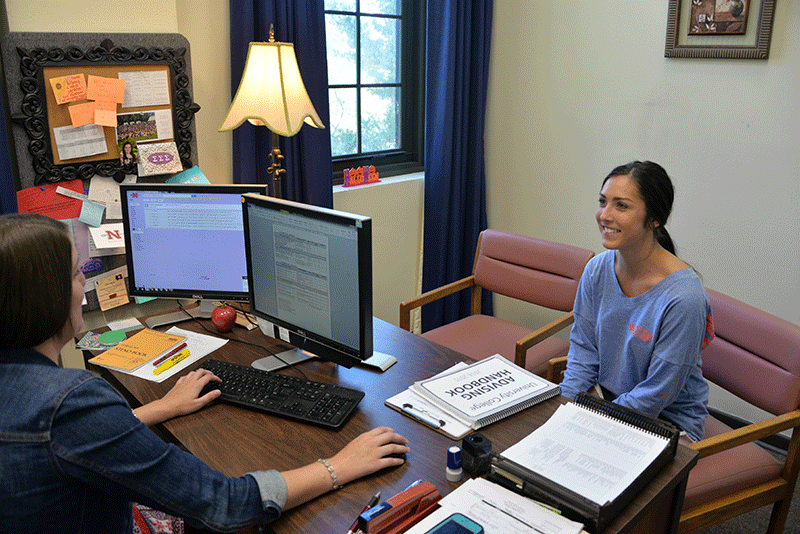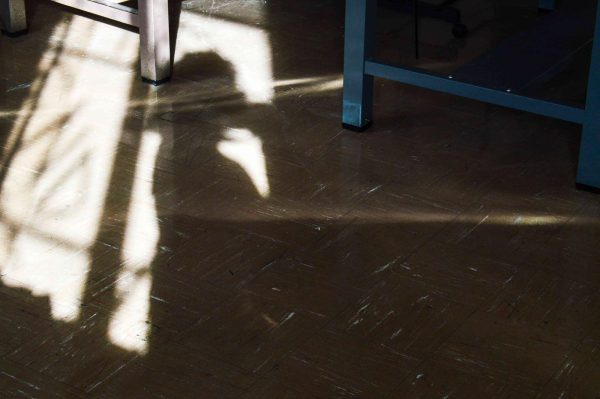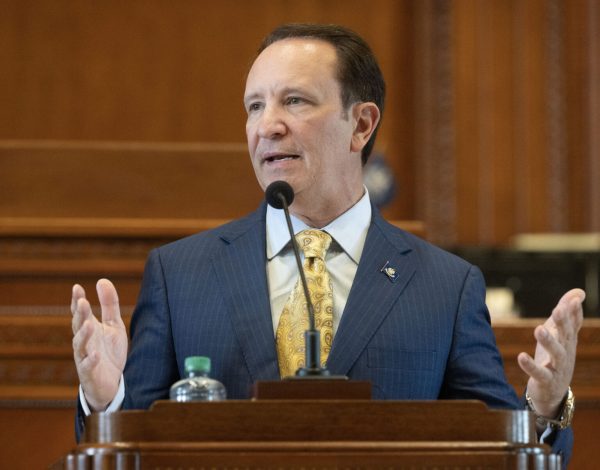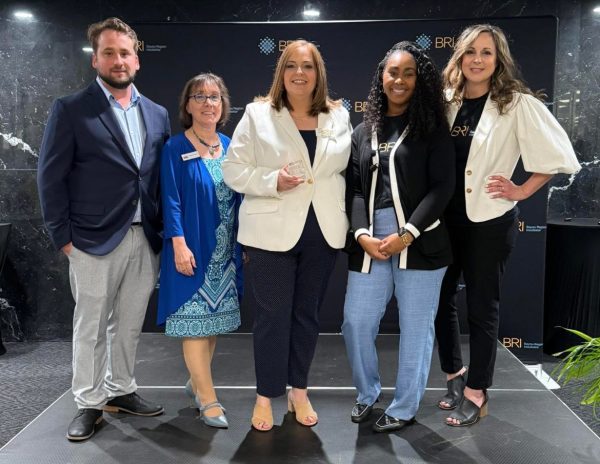Changes in student advising not to be expected until 2017
Photo by: Jeffery Miller
Kristen Waguespack, sophmore dietetics major from Thibadaux, meets with advisor Cambria Bouzigard Wednesday morning.
A possible incentive to meet with advisors may be the only change students see to the advising process for a while, despite the quality enhancement plan’s focus on student mentoring and advising.
Advising sessions for freshmen have already started and on Oct. 29, upper level students will be able to start meeting with their advisors to prepare for next semester.
Ross Janke, art professor and QEP chairperson, said the plan is still in the writing stage, and students should not expect to see changes to the advising process until Fall 2016 or Spring 2017.
The QEP is a project the Southern Association of Colleges and Schools Commission on Colleges (SACSCOC) requires the University to do to maintain its accreditation.
“We’re writing the formal document that goes to SACSCOC,” Janke said. “We’ll have a finished proposal probably at the beginning of November Once we present that to the president, then we’ll be able to bring that to (students) as well. We have to get the word out.”
Janke said the budget for the proposal is subject to the administration’s approval and the University’s ability to afford it.
“What we end up doing and being able to pay for and what we’re going to have to do without is up in the air right now,” Janke said. “I don’t think students will see any change in advising right away in the fall. The faculty is going to have to go through some pretty extensive training.”
One part of the plan that may affect students this year is a survey that would act as an incentive to meet with advisors.
“The incentive would be able to register earlier if you go see an advisor,” Janke said. “After you’re done, you’d fill out this survey, probably online, and then we’d be able to know how the advising went. We’d be able to assess the faculty member, but also assess the advising process itself and try to make it better.”
Amy Hebert, coordinator of the Academic Advising Center, explained that the option for students to register early is more of a question of “whether or not Banner can do it.”
“It’s something that is part of the action plans for the QEP, meaning we want to look into it,” Hebert said. “I’m sure if we find that the possibility is there, it will be something we explore.”
Hebert said the advising process will remain the same, but the content of advising will change in the next few years if all goes according to plan.
“We’re going with the ‘advising is teaching’ model,” Hebert said. “At certain points in a student’s career, we’re going to try to get advising to focus more on thinking about the future.”
This may mean that advisors spend less time approving schedules and more time discussing “high impact practices,” like internships and service learning projects.
“The point we’re trying to make is that advising is a teaching moment,” Janke said. “There’s a lot more that faculty and students should be talking about in an advising session than just the next semester’s schedule.”
Students have varying opinions when it comes to the advising process. Some, like marketing senior Paige Garcia from Metairie, have never had any issues meeting with their advisors.
“I don’t think there’s anything wrong with the advising process,” Garcia said. “I’ve never had any issues with advising or anything like that, so I’m pretty satisfied.”
Other students like Chelsea Pierre, an education junior from Houma have slipped between the cracks in the advising process and are graduating semesters and even years behind.
Pierre recently switched to education from the English department where she said she did not know who her advisor was.
“I’ve never met with any English advisors. No advisor ever reached out to me, I didn’t know who my advisor was and didn’t know how to go about finding out,” Pierre said.
Pierre said had she met with an advisor, she probably could have avoided taking unnecessary classes.
“I was supposed to graduate last semester. This is my fourth or fifth year here,” Pierre said.












